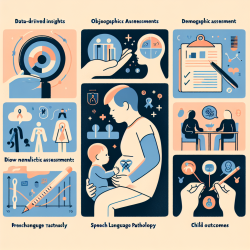Introduction
In the realm of psychology, Mihaly Csikszentmihalyi stands as a towering figure, renowned for his groundbreaking work on the concept of 'flow' and the foundation of positive psychology. His insights have not only reshaped theoretical frameworks but have also had profound implications for practical applications in fields such as speech-language pathology and online therapy. This blog delves into how practitioners can harness these insights to enhance their therapeutic practices, particularly in creating better outcomes for children.
The Essence of 'Flow'
Csikszentmihalyi's concept of 'flow' refers to a state of complete immersion and engagement in an activity, characterized by a sense of effortlessness and focus. This state is often associated with peak performance and intrinsic motivation. In the context of therapy, creating conditions that facilitate 'flow' can significantly enhance a child's engagement and learning.
Applying Positive Psychology in Therapy
Positive psychology, co-founded by Csikszentmihalyi, emphasizes the study of strengths and virtues that enable individuals and communities to thrive. For practitioners in speech-language pathology, integrating positive psychology principles can shift the focus from merely addressing deficits to fostering strengths and resilience in children.
Strategies for Practitioners
- Create Engaging Activities: Design therapy sessions that are challenging yet achievable, encouraging children to enter a state of 'flow'. This can lead to enhanced motivation and better outcomes.
- Focus on Strengths: Identify and nurture the unique strengths of each child. This approach not only boosts confidence but also promotes a more positive therapeutic experience.
- Encourage Autonomy: Allow children some degree of choice and control over their activities. Autonomy can increase engagement and intrinsic motivation, key components of the 'flow' experience.
Encouraging Further Research
While the application of positive psychology and 'flow' in therapy is promising, further research is essential to refine these strategies and validate their effectiveness. Practitioners are encouraged to engage in research initiatives, contributing to the growing body of evidence supporting these approaches.
Conclusion
Mihaly Csikszentmihalyi's contributions to psychology offer invaluable insights for enhancing therapeutic practices. By fostering 'flow' and leveraging the principles of positive psychology, practitioners can create more engaging and effective therapy sessions, ultimately leading to better outcomes for children.
To read the original research paper, please follow this link: A Window Into the Bright Side of Psychology: Interview With Mihaly Csikszentmihalyi.










